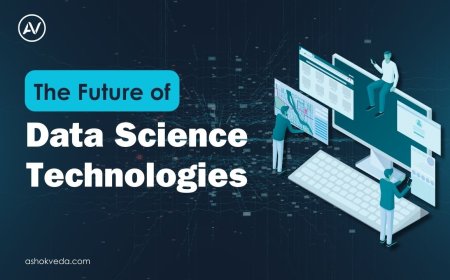The Impact of AI Salesforce Automation
Explore the impact of AI on Salesforce automation, detailing its benefits for efficiency, customer management, data analysis, and workflow optimization

Salesforce is a leading cloud-based customer relationship management (CRM) technology that improves client interactions and transforms sales procedures. Its importance stems from its capacity to improve lead management, accelerate sales processes, and offer useful insights to companies of all kinds. The utilization of artificial intelligence in salesforce automation plays a crucial role in enhancing the productivity and efficacy of sales teams. It allows for the automation of repetitive operations, extensive dataset analysis, and customized client experiences. Businesses may increase productivity, shorten sales cycles, and strengthen customer relationships with The Impact of AI Salesforce Automation, all of which will ultimately propel growth and success in the cutthroat business world of today. Salesforce platforms that integrate AI techniques improve features like recommendation engines, lead scoring, and predictive analytics. These capabilities enable organizations to provide clients with specific guidance, prioritize leads efficiently, and make well-informed decisions. The Impact of AI Salesforce Automation to expedite procedures, enhance decision-making, and stimulate significant interactions, all of which eventually increase sales performance and customer satisfaction, makes its impact clear.
Increasing the Efficiency of Sales
Salesforce's artificial intelligence features play a crucial role in optimizing sales processes through the automation of routine tasks. For example, data entry can be handled by Salesforce machine learning algorithms, which ensure accuracy and efficiency while freeing up sales personnel to concentrate on higher-value tasks. Furthermore, Salesforce's AI-powered scheduling features automatically set up meetings and appointments, enhancing sales professionals' time management. Furthermore, automatic follow-ups are made possible by Salesforce AI's ability to analyze client interactions and send tailored messages or reminders in response to preset parameters. These illustrations highlight how artificial intelligence Salesforce integration boosts sales teams' productivity and efficacy and enables them to work more effectively and efficiently. Businesses may increase operational efficiencies, boost sales, and provide better customer experiences by utilizing Salesforce's AI-driven capabilities. In the end, artificial intelligence's smooth integration with Salesforce platforms helps businesses stay competitive in the fast-paced market of today by promoting innovation and ongoing process improvement in sales.
Benefits of AI in Salesforce for Sales Teams
A. Improved Prioritization and Lead Management:
-
Salesforce AI analyzes data trends and behaviors to help sales teams manage and prioritize leads more effectively.
-
Salesforce can automatically rate leads based on a range of factors, including engagement level, demographics, and previous interactions, thanks to machine learning algorithms.
-
By concentrating their efforts on leads that have the best chance of converting, sales representatives are able to increase sales efficiency and lead management effectiveness.
B. Enhanced Customer Insights and Personalized Interactions:
-
By analyzing huge amounts of data from several sources, Salesforce's AI-driven capabilities offer deeper customer insights.
-
By using these data, sales teams may better understand the preferences, patterns of behavior, and pain areas of their customers and adjust their interactions and solutions appropriately.
-
Sales representatives may enhance engagement, forge closer bonds with clients, and eventually boost conversion rates by providing personalized experiences.
C. Enhanced Productivity and Streamlined Sales Processes:
-
Salesforce AI increases productivity by automating repetitive operations like scheduling, data input, and follow-ups.
-
By reducing manual labor, automation frees up sales staff to concentrate more on strategic tasks like prospecting and deal closure.
-
Sales representatives may work more productively and quickly through sales cycles when processes are streamlined.
D. Precise Sales Forecasting and Performance Monitoring:
-
By examining past data, industry patterns, and other pertinent variables, Salesforce's AI capabilities allow for precise sales forecasting.
-
Sales teams can gain insights into future sales prospects and potential dangers by using machine learning algorithms, which are capable of identifying patterns and correlations.
-
Real-time performance tracking is another benefit of AI-powered analytics solutions, which give sales managers the ability to make data-driven decisions and improve their sales tactics.
Challenges and Considerations
A. Privacy and Data Quality Issues:
-
Preserving high-quality data is essential to Salesforce's AI's efficacy. Incomplete or inaccurate data can result in incorrect conclusions and choices.
-
Customer data collection and use give rise to privacy problems. To keep customers' trust, businesses need to make sure they are in compliance with data privacy laws like the CCPA and GDPR.
B. Adoption Challenges and Complexities of Integration:
-
There could be difficulties integrating AI into Salesforce because of incompatibilities with current procedures and systems.
-
Resistance to change and the requirement for assistance and training in order to enable users to successfully adopt new AI-powered features are the main causes of adoption issues.
C. Training and Skill Development for Sales Teams:
-
To use Salesforce's AI solutions efficiently, sales teams need to receive training and skill development.
-
Sales representatives should receive training that focuses on acquainting them with AI characteristics, deciphering insights derived from AI, and integrating AI into their regular tasks.
D. Juggling Automation and Human Touch in Sales Interactions:
-
AI automation boosts productivity, but retaining a human touch is necessary to establish rapport and trust with clients.
-
Sales teams have to find a way to combine using AI to automate monotonous operations with interacting directly with clients to meet their specific wants and problems.
E. Techniques for Overcoming Obstacles and Optimizing Advantages:
-
To guarantee reliable insights, put data quality procedures into place, such as routine data cleansing and validation.
-
Set integration efforts as a top priority and offer thorough guidance and assistance to ensure that Salesforce's AI adoption goes smoothly.
-
Invest in continuing education programs to improve the abilities and self-assurance of your sales force using AI tools.
Future Trends and Outlook
As AI continues to evolve, emerging technologies, including computer vision, natural language processing (NLP), and predictive analytics, will influence Salesforce's future as AI advances. These developments will make it possible to automate more complex tasks, gain deeper insights, and improve predictive skills, all of which will increase the efficacy and efficiency of sales processes. The integration of AI-powered virtual assistants for sales representatives, personalized product recommendations based on in-the-moment customer interactions, and predictive pricing models are potential future innovations in AI-driven sales strategies that could enable sales teams to anticipate customer needs and drive revenue growth through more focused approaches. The salespeople will need to adjust to the changing role of AI in sales, though, and accept new technology as essential components of their workflows that complement human skill rather than replace it. To remain competitive in the AI-driven sales arena, salespeople and AI specialists must work together, learn from each other, and prioritize the needs of their customers. These strategies will allow salespeople to effectively utilize AI-driven insights and provide customized, memorable sales experiences.
We've covered the use of AI in Salesforce during our conversation, emphasizing how it can improve lead management, personalize interactions, and streamline workflows to improve sales processes. The revolutionary potential of artificial intelligence (AI) in Salesforce for sales teams is evident, even in the face of obstacles like integration complexity and worries about data honesty. Businesses need to be aware of the competitive edge that AI-powered sales techniques can provide in the future and move quickly to adopt these technologies. Businesses can fully utilize AI in Salesforce to increase productivity, efficiency, and long-term success in the ever-changing sales landscape by investing in AI technology and providing sufficient support for sales teams.





































